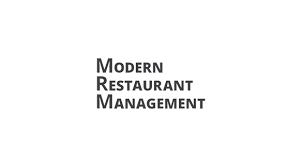Boost Your Restaurant’s Bottom Line and Go Green with Smart Cooking Oil Management!
Are you a restaurant operator looking for ways to enhance efficiency, slash costs, and improve your sustainability efforts? Modern Restaurant Management (MRM) magazine recently spoke with John Michals, COO of Filta Environmental Kitchen Services, to shed light on how better cooking oil management can help you achieve these crucial goals.
Many restaurant operators hold misconceptions about cooking oil’s impact. For instance, some believe their oil usage is too small to matter, or that disposing of used oil down the drain is acceptable. Others may not realize that different cooking oils have varying environmental footprints, or that sustainable oil practices don’t necessarily mean higher costs.
The reality is that effective cooking oil management offers significant advantages. As highlighted in the MRM article, there’s a strong connection between restaurant cooking oil practices and sustainability. Key aspects include:
- Used Cooking Oil Management: Properly recycling used cooking oil into biodiesel reduces waste and minimizes environmental impact.
- Fresh Oil Sourcing: Choosing sustainably sourced oils supports ecosystems and local economies.
- Energy Efficiency: Recycling used oil contributes to renewable energy production.
- Consumer Awareness: Sustainable practices appeal to eco-conscious customers.
- Quality and Health: High-quality, sustainable oils enhance food quality.
So, what can your restaurant do to be more sustainable with cooking oil? The MRM article suggests focusing on:
- Oil Filtration over Replacement: Regularly filtering and cleaning fryer oil extends its life, reducing the need for frequent oil changes and minimizing waste. While this can be time-consuming and potentially dangerous for staff, services like Filta offer a convenient and safe solution.
- Proper Used Cooking Oil Disposal: Implementing strict standards for used oil disposal is crucial.
- Employee Safety: Training staff on safe oil handling practices minimizes waste and promotes sustainability.
By partnering with specialized service providers like Filta, your staff can focus on core operations, leading to increased efficiency and potentially boosting sales. Better oil management also translates to significant cost savings by extending oil life and reducing oil purchases. Furthermore, it leads to improved food quality and consistency, enhancing customer satisfaction.
Ultimately, as the MRM article emphasizes, better cooking oil management not only enhances efficiency and reduces costs but also supports your restaurant’s long-term sustainability goals.
Ready to optimize your kitchen’s oil management? Learn more about the benefits discussed in this article in Modern Restaurant Management.











